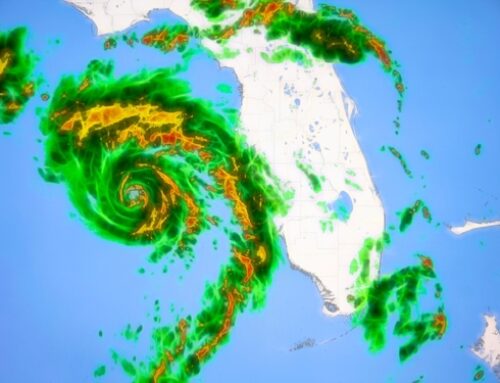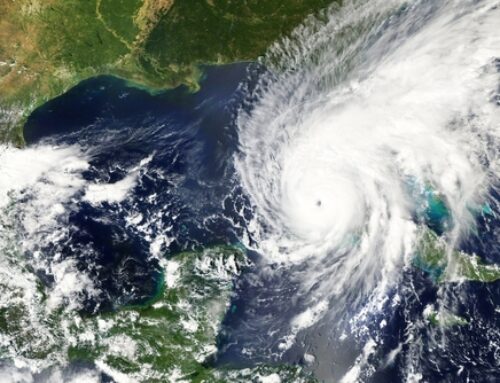Climate change is affecting communities nationwide, but Florida often seems like ground zero.
When Hurricane Idalia shut down the Florida Panhandle in September 2023, it was augmented by a blue supermoon that increased tidal flooding in southeast Florida. When the sea-level rises it harms local governments and the services they support financially.
Property taxes are critically important for municipal governments. When rising seas swallow up coastal properties, anyone who relies on public education, fire departments, and other municipal services should be concerned when parcels of land fall below the tide line. Because when land disappears, so too, does the property tax revenue that it generates to fund those public services. Nationwide, property tax provides 30% of local revenues. They are one of the few funding sources that local governments control, and climate change directly threatens them.
Government can reduce the effects of the rising sea levels by taking steps such as upgrading stormwater systems and raising roads and sidewalks.
In a newly published study, a first-ever municipal fiscal impact assessment of sea-level rise in Florida was conducted and combined with a statewide survey of coastal planners and managers, to determine how sea-level rise would affect municipal tax revenues and whether coastal planners and managers are accounting for these fiscal impacts.
The study found that more than half of Florida’s 410 municipalities will be affected by 6.6 feet of sea-level rise. Almost 30% of all local revenues currently generated by these 211 municipalities come from buildings in areas that will become chronically flooded, potentially by the end of the century. Yet planners and managers remain largely unaware of how much climate change will affect local fiscal health. Some communities with the most at risk are doing the least to prepare.
In Florida, the analysis shows that sea-level rise could flood properties that have a combined assessed value of $619 billion which currently generates $2.36 billion in annual property taxes. Some 5 million Floridians live in towns where only 10% of local revenue comes from properties at risk of chronic and permanent flooding. However, for 64 municipalities, 50% of revenue comes from these risk zones.
The Consumer Law Office (CLO) – Helping to Resolve Property Damage Claims & Disputes in Your Favor!
If your property was damaged during a tropical storm, hurricane, or other severe weather event or if you have hail damage, roof damage, pipe burst, plumbing or water damage, mold, smoke-fire damage, lightning, theft, vandalism, or construction defects let the Property Damage Attorneys at CLO, help you receive the maximum property damage compensation you are entitled to under your insurance policy.
Contact Mordechai Breier, Attorney and Founder of CLO Today 305-940-0924 for a FREE Comprehensive Property Damage assessment and consultation.
Your insurance company hires experts to protect their interests; your representation should be no different.
We only get paid when you get paid by your insurance company.
Contact CLO Today! 305-940-0924 Visit: https://consumerlawoffice.com/






